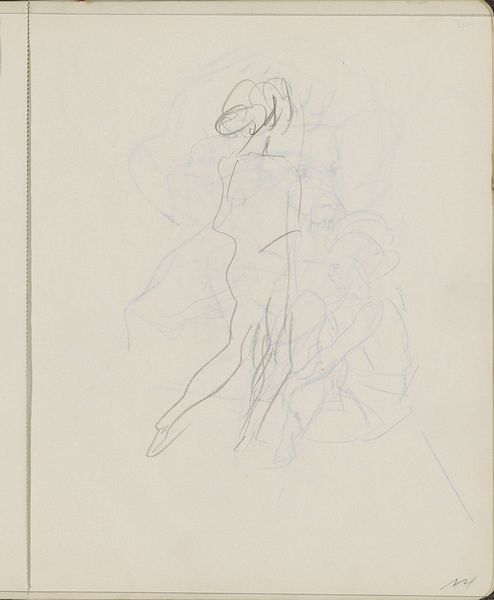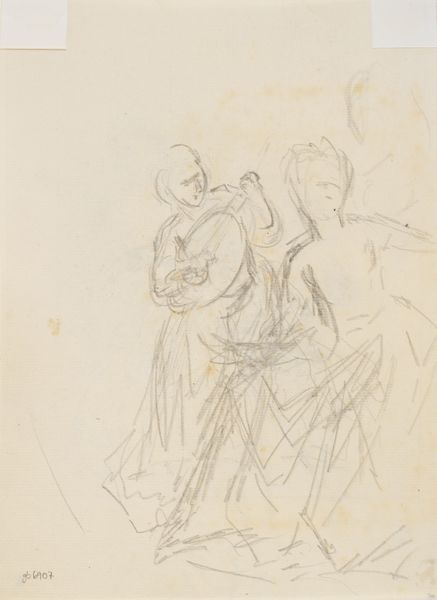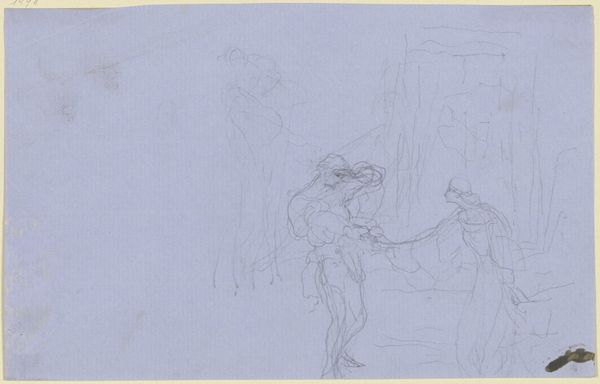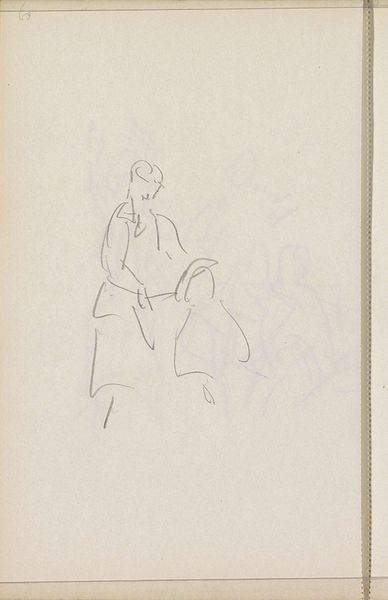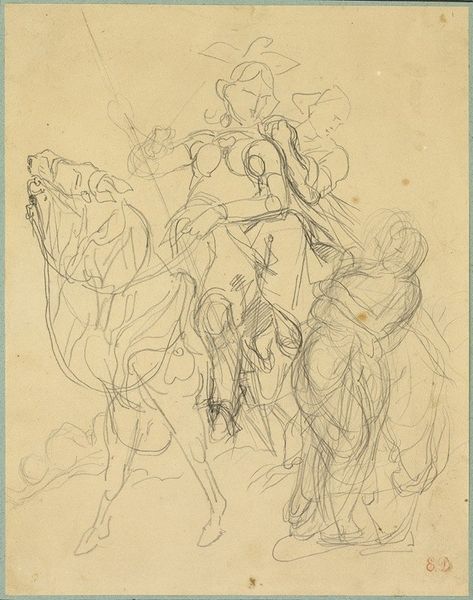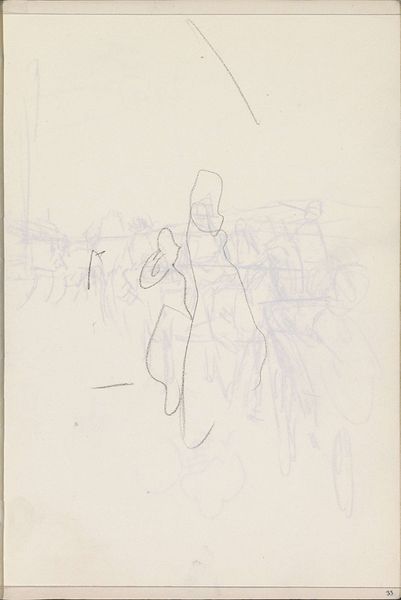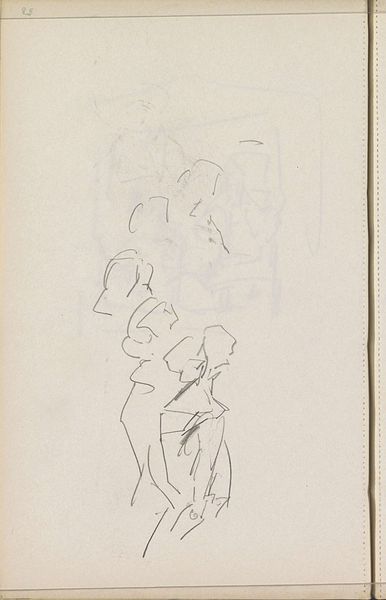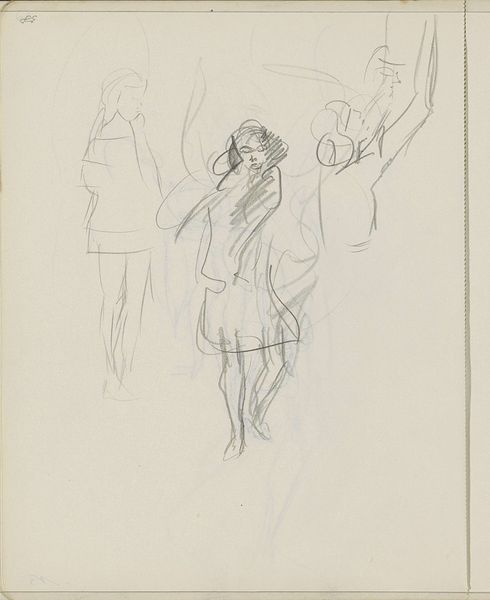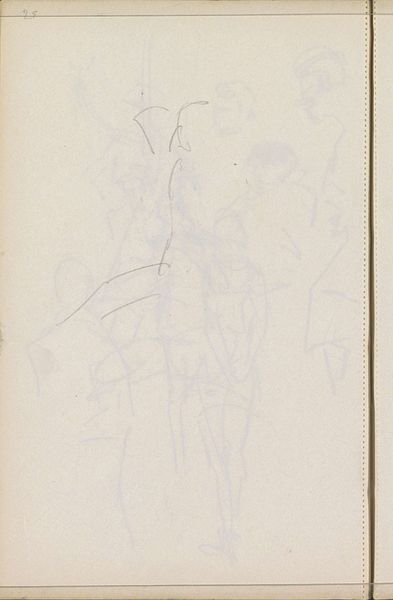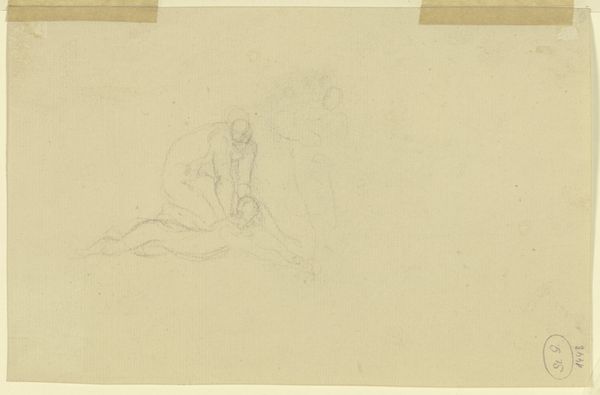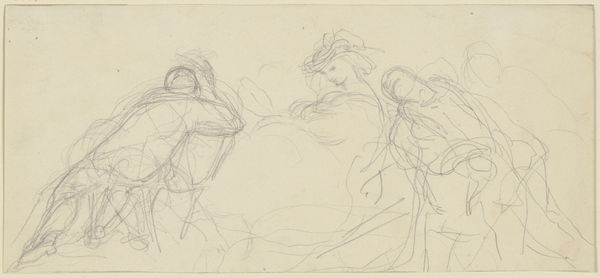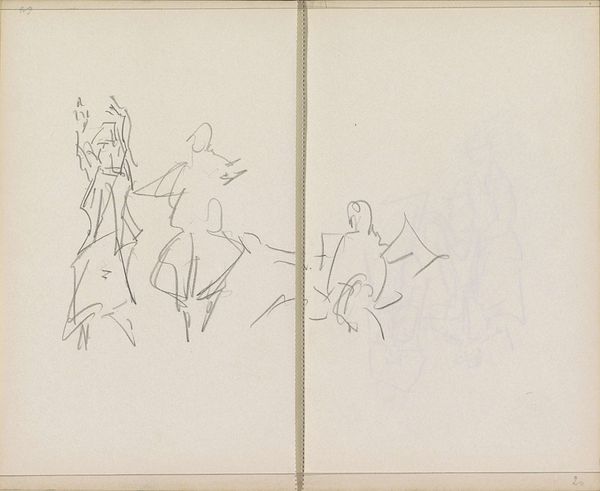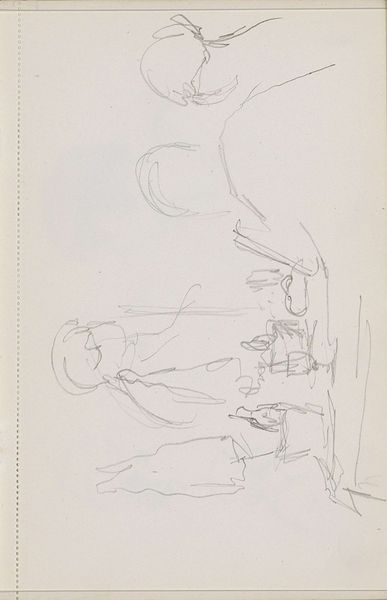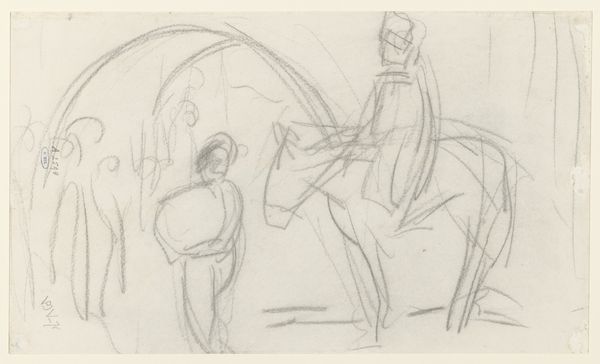
drawing, pencil
#
portrait
#
drawing
#
imaginative character sketch
#
light pencil work
#
ink drawing
#
pen sketch
#
figuration
#
personal sketchbook
#
idea generation sketch
#
ink drawing experimentation
#
pen-ink sketch
#
pencil
#
sketchbook drawing
#
sketchbook art
Copyright: Rijks Museum: Open Domain
Curator: Isaac Israels sketched this work, “Woman with her Hands on the Ground,” around the 1920s. It resides here at the Rijksmuseum, a pencil drawing on paper. My first thought is its almost painful incompleteness, yet something powerful still comes through. What strikes you? Editor: Its delicacy, really. Those almost ethereal pencil lines suggesting figures emerging from… well, the void of the page. There's a kinetic energy even in its unfinished state, an attempt to capture fleeting moments of these figures’ states of mind or bodies in time. Curator: Indeed. There's an intentional ambiguity. Her posture is significant. She’s hunched, but not necessarily defeated. What do you feel her hands planted on the ground communicates? Editor: I wonder if she’s bracing herself? Rooting perhaps. Or it may speak to some profound act of connection, drawing power from the earth. It has connections to art from that time but could even evoke ideas of a mother goddess in some contexts. What are your thoughts on these ethereal women as representative of societal and cultural trends for women at the time? Curator: Perhaps they are the spirit of the flapper, trying to anchor themselves amidst societal change after the first world war. They represent the emergence of the "new woman," unbound from conventional expectations yet in flux in the post-war landscape. Notice also how her face is partially obscured, perhaps hinting at the multifaceted identity these women were developing. The formal sketch might hide this face but speaks to something more complex. What is being said through their form? Editor: Yes, that very incompleteness might ironically become its strength! It captures not just a physical likeness but a cultural state of constant negotiation. The light pencil strokes, too, mimic that—evanescent yet bold, a balance the "new woman" herself was trying to achieve. This artwork may be subtle, but the sketched forms hint at deeper conversations of identity and belonging from the early 20th century. Curator: An evocative interpretation; I will leave it here. It's often in such delicate expressions that a culture reveals itself most sincerely. Editor: Absolutely, finding unexpected insight in such seemingly unfinished work; that, too, is its allure.
Comments
No comments
Be the first to comment and join the conversation on the ultimate creative platform.
